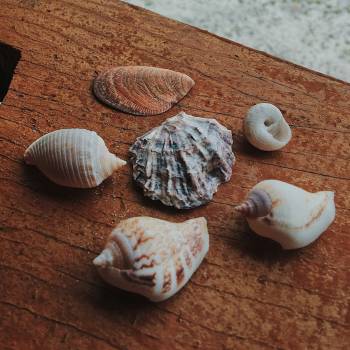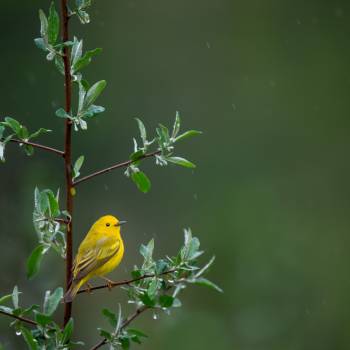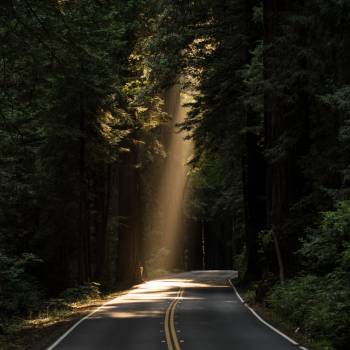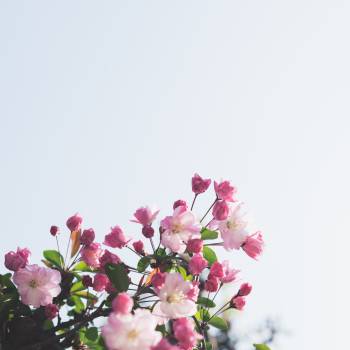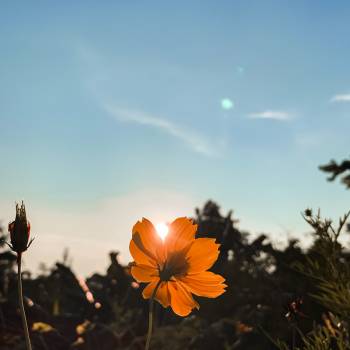بسم الله الرحمن الرحيم
There is not a single person on earth who doesn’t have a worry or concern. Some are worried because of a debt they owe, or the declining of their wealth, while others are worried because of the sickness they have — and these are all valid concerns. We ask Allah ta’ala to remove our afflictions, and replace them with ease.
But who among us is actually worried about the first night in the grave?
Who is worried of the day when he stands alone before Allah, when his deeds are placed upon the scale, when he awaits for his judgement of either eternal retribution or everlasting bliss, when he will have to pass the siraat (the bridge over Hellfire) on the Day of Judgement?
Because here is our reality check: We are all merely travellers in this temporary abode we call dunya. And like it or not, we’re all moving towards our final and permanent destination. Allah subhanahu wa ta'ala warns us about this, when He says:
“O you who believe! Have taqwa of Allah, and let every person look to what he has sent forth for the tomorrow, and have taqwa of Allah. Verily, Allah is All-Aware of what you do.”
[Surah Al-Hashr 59 : 18]
In this ayah, Allah commands us to look at what we’ve prepared for our tomorrow, meaning the akhirah. Allah wants us to be concerned with the welfare of our hereafter. And when there’s an ayah of Commandment, it therefore means that this concern is both an act of worship, and an obligation upon every single one of us. As much as we’re concerned about our dunya, the concern for our hereafter is much more critical, and requires a far greater degree of attention from us.
Because if we don’t think about what we’ve prepared for Tomorrow, then we will forget about doing good deeds altogether. Allah ta'ala says in the next ayah:
“And be not like those who forgot Allah, and He caused them to forget their own selves (i.e. let them forget to do righteous deeds). Those are the Fasiqun (rebellious, disobedient to Allah).” [Surah Al-Hashr 59 : 19]
Bilal radhi Allahu ‘anhu, one of the greatest companions of Rasulullah salla Allahu ‘alayhi wa sallam (ﷺ), prepared himself for that Day with numerous ‘ibaadah. And amongst those good deeds was a simple act of worship that Allah loves — and that was his two raka’at prayer after wudhu’ (ablution).
Abu Huraira radhi Allahu ‘anhu narrated that Rasulullah ﷺ asked Bilal: “Tell me of the best deed you did after embracing Islam, for I heard your footsteps in front of me in Jannah.”
Bilal replied: “I did not do anything worth mentioning, except that whenever I performed wudhu’ during the day or night, I prayed after that wudhu’ as much as was written for me.” [Sahih Al-Bukhari 1149]
Look at Bilal’s humility when he answered Rasulullah ﷺ. He said: “I did not do anything worth mentioning”, when we know that there were numerous excellent good deeds and sacrifices he endured for the sake of Allah. Then he mentioned the voluntary prayer he did every time he finished his wudhu’. He held onto this act of worship until he met Allah subhanahu wa ta'ala.
Consider also this hadith, where Rasulullah ﷺ said: “Whoever was amongst the people who used to offer their prayers, will be called from the Gate of the Prayer (in Jannah);
and whoever was amongst the people who used to participate in Jihad, will be called from the Gate of Jihad;
and whoever was amongst those who used to observe fasts, will be called from the Gate of Ar-Raiyan;
whoever was amongst those who used to give in charity, will be called from the Gate of Charity.” [Sahih Al-Bukhari 1897]
From numerous ahadith, we learn that there are 8 gates of Jannah, and in the above hadith, we learn that these gates have specific names with a specific deed attached to it. Have you ever wondered why?
Amongst its benefits is because Allah is encouraging us to have at least one good deed that we will always hold onto, by which we hope Allah ta’ala would admit us into Jannah through its gate. Scholars mentioned that what is referred to in this hadith are extra voluntary deeds of each category, not obligatory deeds. This is because there are many who perform obligatory deeds, but very few who strive to do extra voluntary deeds.
So we need to ask ourselves: On top of the obligatory acts of worship, what is this at least one voluntary ‘ibaadah that I will continue to hold onto until I meet Allah subhanahu wa ta'ala?
What are we going to come with on the Day of Judgement — when the companions radhi Allahu ‘anhum would be coming with mountains and mountains of excellence, when the pious are coming with lifelong projects that Allah is pleased with, when others are coming with numerous acts of worship that they did sincerely for Allah?
What will we present for ourselves to Allah subhanahu wa ta'ala for Tomorrow?
The intelligent traveller is the one who will bring with him the correct aqidah (core belief / creed) and good deeds. May Allah make us amongst those whose scale of good deeds are heavy with both obligatory and voluntary acts of worship.
Rasulullah ﷺ said:
“The most beloved deed to Allah
is the most regular and constant,
even if it were little.”
Your sister in Deen,
Aida Msr
 Aida Masuri Mustafa
Aida Masuri Mustafa 